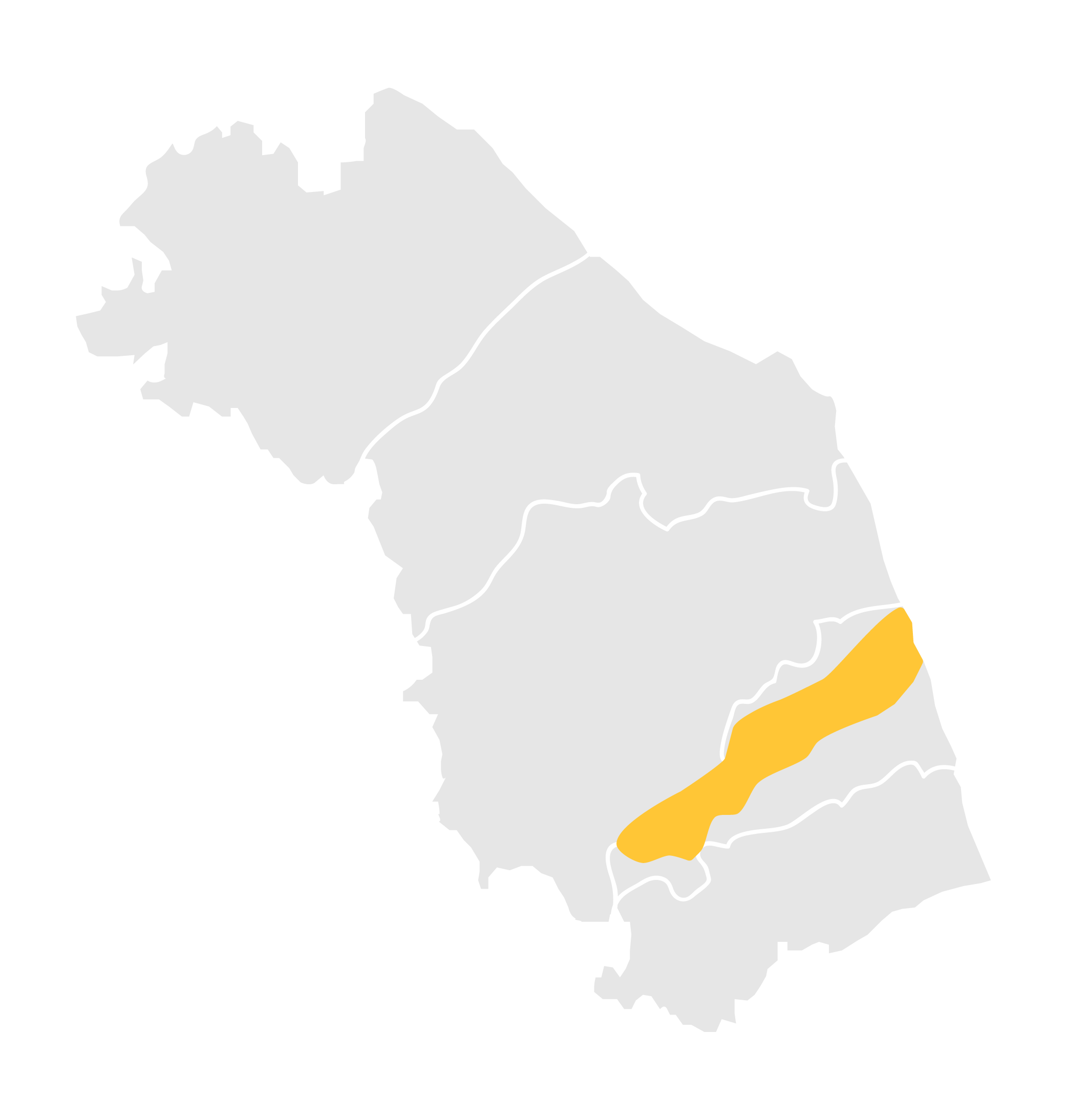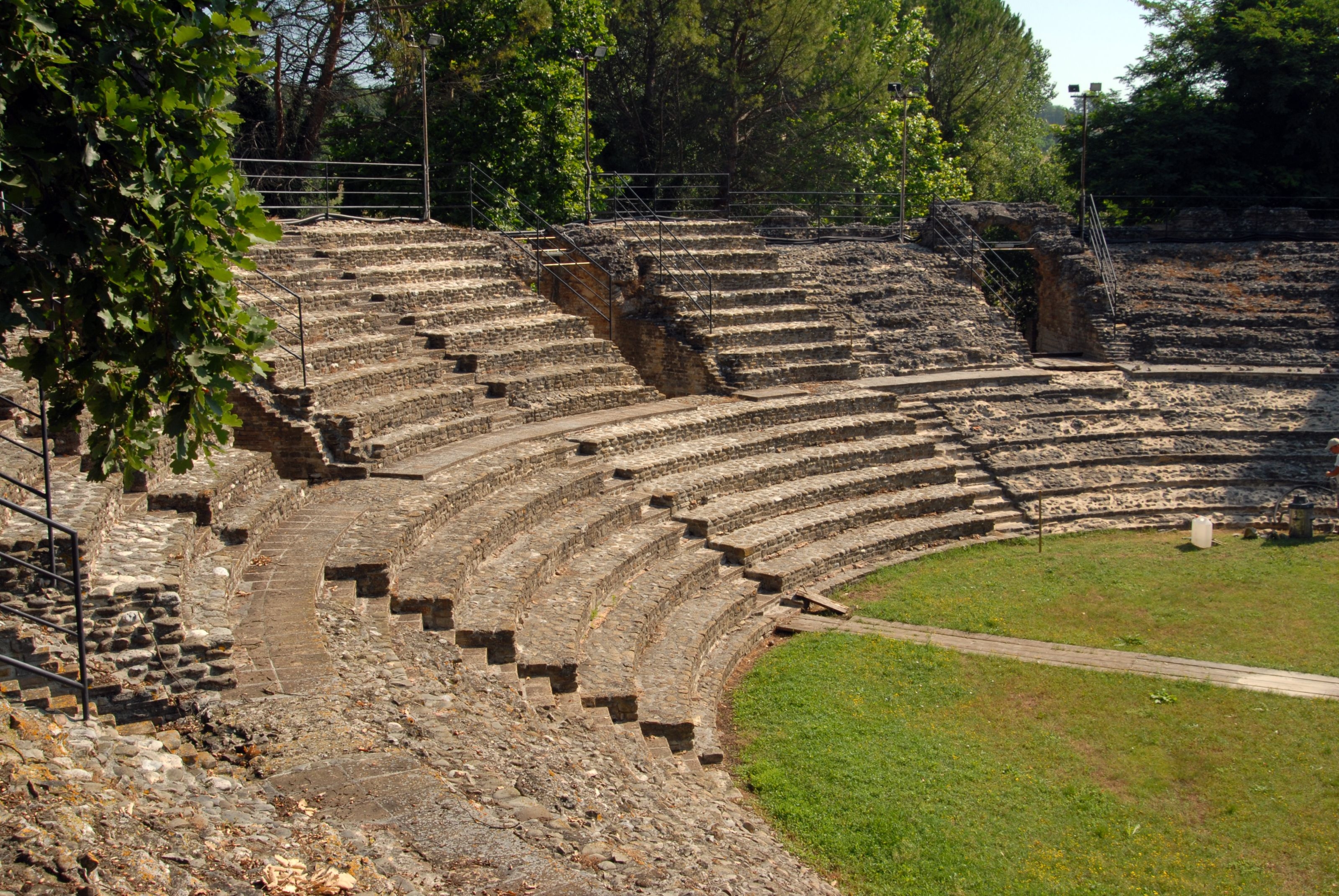
The ruins of the Roman city of Falerio Picenus are visible at the archaeological park in Piane di Falerone, about 2 km east of Falerone's historic center. The city was born as a municipium in the fertile plain north of the Tenna River, previously frequented by the Picenes, and became colonized in the Augustan Age, probably due to the allocation of land to veterans of the civil wars. Despite the fact that the city's layout has been partially compromised by the modern buildings of the hamlet of Piane di Falerone, the Cardo route is still recognizable, corresponding to the current route of Via del Pozzo, as is that of the Decumanus, which is traced by the road leading to the Roman Theater. At the archaeological park there are several structures of Roman times, among them being the splendid theater, one of the best preserved in the Marche region, built in the Augustan era and modified by construction works up to the 3rd century AD. The monument, which originally could accommodate about 1,600 people, preserves entirely the ima and media cavea seating areas, two side entrances and parts of the proscenium. The Roman theater is still used for shows in the summer. Not far from the theater there are also the remains of the amphitheater; partly obliterated by modern structures, the monument preserves only traces of the exterior wall, some portions of the radial walls and the east entrance. Another monument visible at the archaeological park is the large cistern called "Bagni della regina", built between the 1st century BC. and the 1st century AD, which originally flanked the city's cardo. In the past there had been identified some structures related to baths, which are currently no longer visible, and the necropolises located in non-urban areas along the current via Faleriense.
We have found no place to eat in the vicinity
We have found no place to sleep in the vicinity
Vino e olio, eccellenze dell’agricoltura e della gastronomia marchigiana, sono da sempre al centro dell’economia e dell’identità culturale locale, come testimoniano i numerosi impianti per la produzione olearia e vinicola presenti sin dall’età picena nella regione. Il viaggio alla scoperta del territorio dedicato all’antica produzione dell’olio e del vino ci conduce lungo la Salaria Gallica, strada che collegava Fossombrone ad Ascoli Piceno passando per le principali colonie romane, immerse nelle verdi colline marchigiane.

|
Address | Via Pozzo Falerone |

|
Phone Number | (+39) 333 5816389 |

|
Opening Time | Solo su prenotaione |

|
Visit Time | 1 h |

|
Entrance Fee | 3 € |

|
Reservation Required | yes |

|
Bookshop | no |

|
Free Guided Tour | no |

|
Guided Tour | SI, al costo di 5 euro comprensivo di ingresso al parco |

|
Parking | yes |

|
Disabled Accessibility | yes |

|
Audioguide | no |

|
Didactic Rooms | no |

|
Conference room | no |

|
English language | Inglese . In lingua solo su prenotazione |

|
Public Transport | no |

|
Family Services | Area pic nic. |
